
Using recycled materials, specifically recycled plastics, is very much in vogue. In this post, we showcase the latest trends.
When tackling an interior design project for retail spaces and window displays, there are numerous materials to choose from. Depending on the design at hand, we select different ones. Trends set the direction, and one of the most followed currently is sustainability.
Wood and iron have been the most commonly used materials for designing eco-friendly retail spaces or window displays, thanks to their high recyclability. However, innovation in creating new materials has brought us recycled plastics in various forms, giving us a new sustainable tool that promotes the circular economy.
The perception of plastic as a polluting material has completely changed with the creation of recycled plastic, with its numerous finishes and uses.
Brands like Nike, Audi, North Sails, and IKEA use it in their decorations. Many architectural firms incorporate it into their projects, and numerous furniture brands manufacture their creations from this new material.

Depending on the type of recycled plastic you want to use, the characteristics will vary. Here are some of the most common types:
Recycled Cast Acrylic
Recycled cast acrylic is a transparent plastic used to replace glass, also known as Plexiglas. Compared to glass, it weighs half as much, is non-glare, highly scratch-resistant, and anti-fog. Cast acrylic sheets are 100% recycled and recyclable. Acrylic is infinitely recyclable without losing its properties, maintaining the same quality, optical, mechanical, and technical performance as cast acrylic sheets made from virgin raw materials.
Recycled Extruded Acrylic
For the production of extruded acrylic, granulated pellets are melted in an extruder. The resulting melted acrylic is shaped into the desired form at the end of the extruder through nozzles. Compared to cast acrylic, extruded acrylic has lower thickness tolerances, which is advantageous for production and is also more economical. There is a more sustainable version of extruded acrylic (XT), consisting of 70% recycled acrylic, mainly from used LCD screens and production waste.
Sheets Pressed from Plastic Waste
Plastic wood sheets or boards are made from 100% recycled materials, such as high-density polyethylene (HDPE) from disposable beverage containers, food packaging, detergents, and low-density polyethylene (LDPE) from bags, plates, cutlery, and cups. This material comes in a variety of finishes depending on the source of the plastic used and can be used as a construction element in any design project.
Recycled Solid Surface
This sheet material consists of at least 30% recycled material. It is made from a mineral filler bonded to a polyester or acrylic resin. Solid surface material is known for its excellent properties: it is chemical-resistant, non-flammable, food-safe, non-porous, antibacterial, and biologically neutral. The surface of this material is robust and very easy to maintain.



The applications are numerous and varied, limited only by imagination. Many architectural and interior design and interior design firms are adopting this sustainable alternative in their projects.
The versatility of this material means that sustainable plastics can be used to create any product:
Depending on the supplier, the formats vary, with the most common being boards or sheets of this new material created from discarded plastic objects, such as water bottles, mobile phones, CDs. The origin is endless, and so are the finishes.
By producing these materials as flat sheets of different thicknesses (5 mm, 12 mm, 20 mm), they can be easily transformed. Applying a heat source makes recycled plastic mouldable, allowing the creation of 3D structures. It can also be cut, screwed, glued—it’s a very versatile, durable, and robust material.
More and more suppliers of recycled plastic for retail use are emerging. Some of them include:
More and more architectural firms, designers, window dressers, interior designers, and artists are encouraged to work with recycled plastic. Many brands want to use this material in their stores or to create their products. Let’s look at some examples.
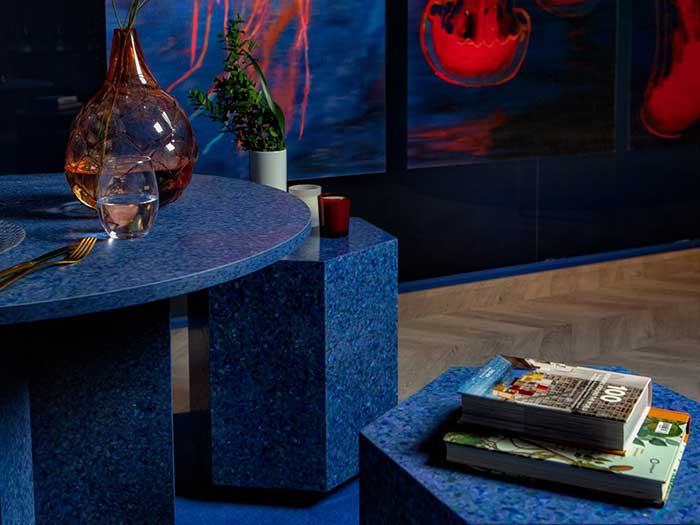
“Revolución Limo” furniture.
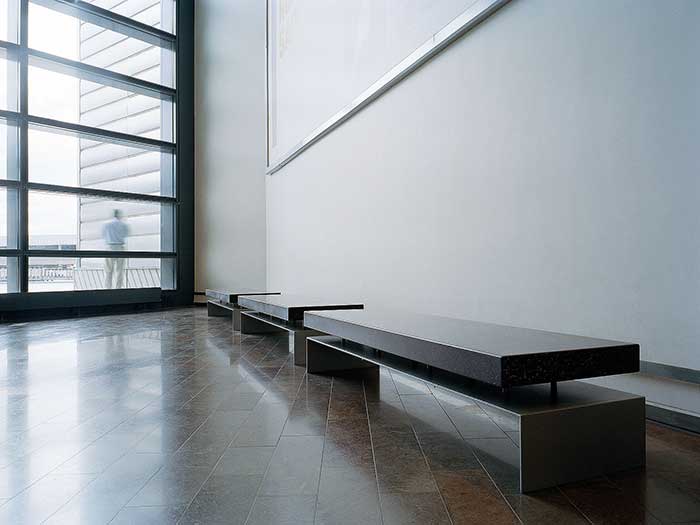
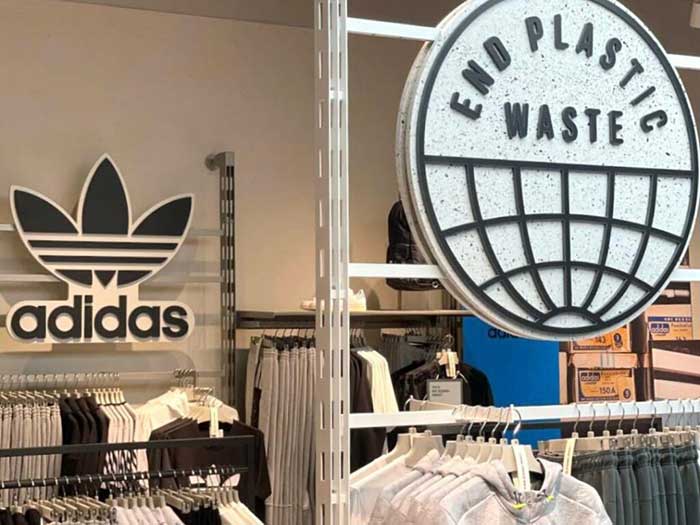
Adidas Store. The Good Plastic Company.
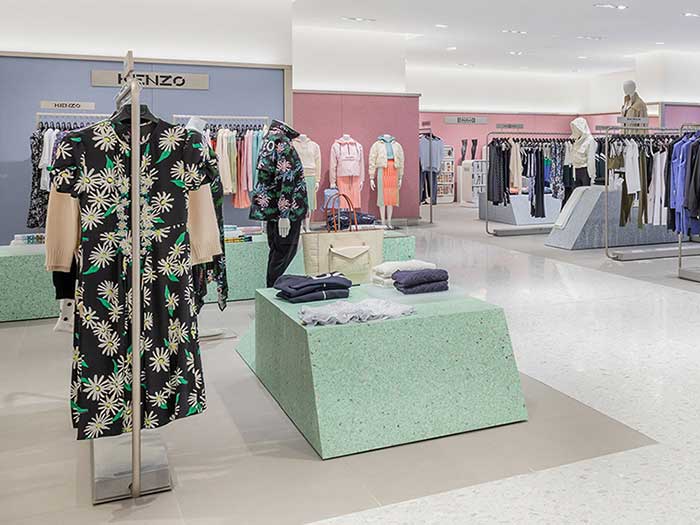
Kenzo Store. Smile Plastic.
Millions of tonnes of plastic waste end up in the world’s oceans each year. Consequently, parts of our seas have become landfills, and numerous microplastics contaminate marine flora and fauna. The problem is increasingly noticeable, prompting movements for ocean recovery and conservation that have reached the retail sector.
Why continue consuming natural resources if we can reuse?
Recycled materials are here to stay, and the commitment to recycled plastic is a fact.
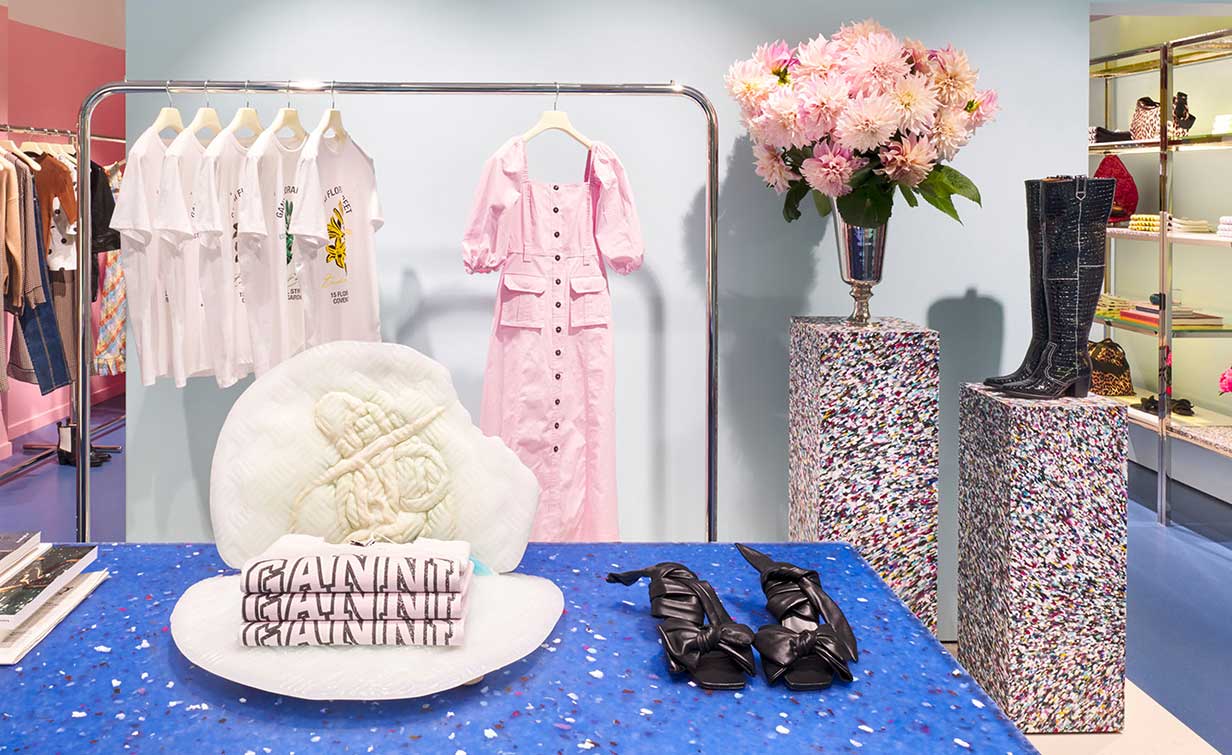
You may also be interested
open
08:00 AM-18:00 PM Monday – Friday
08:00 AM-18:00 PM Monday – Friday